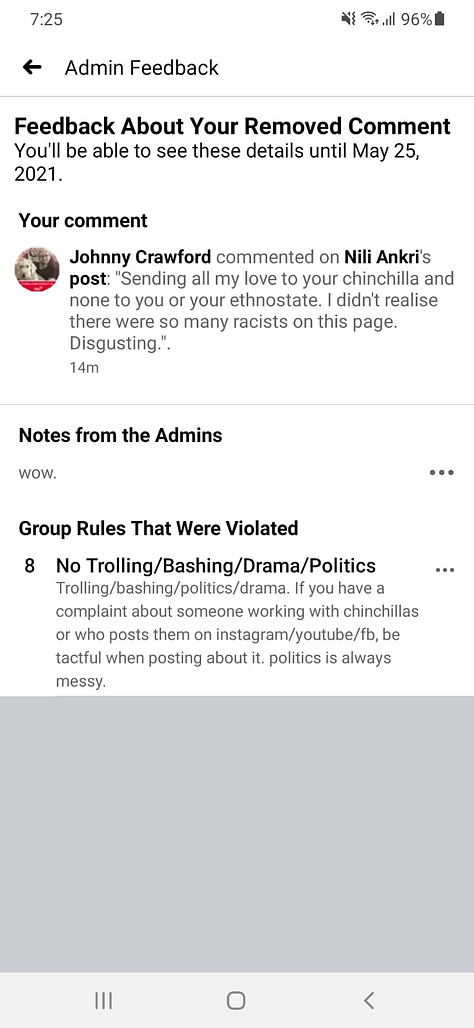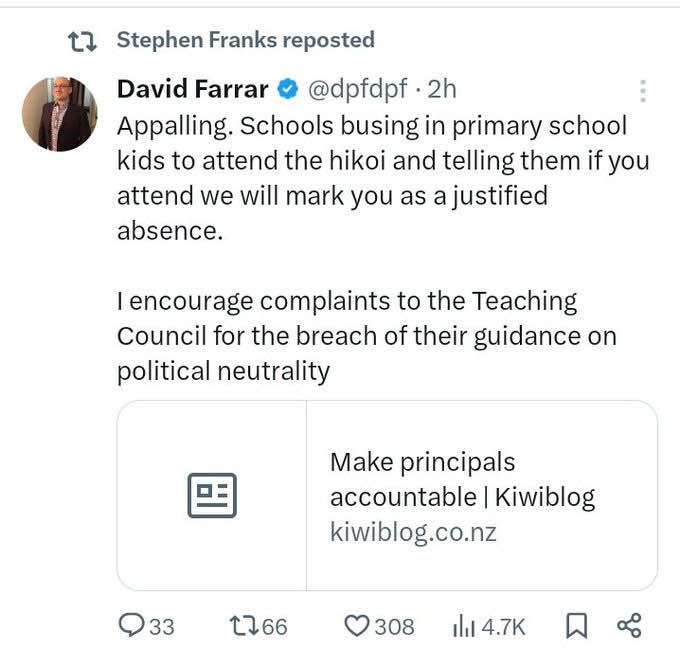'Political neutrality' and other fantasies
Why is a concept so foundational to the public sector so frequently misconstrued?
The Public Service Commission’s (PSC) guidelines on ‘political neutrality’ are reasonably straightforward. These are enshrined in the Public Service Act 2020 (the Act) and reiterated by the Cabinet Manual, Code of Conduct and PSC guidance. While the concept of ‘political neutrality’ is ultimately a problematic one, it’s pretty easy to adhere to the guidelines while at work.
To over-simplify, political neutrality means not using the workplace to present your political self and not representing your workplace when engaging in politics outside work. It can differ depending on your role and seniority but it’s not a particularly tough concept to grasp.
How is it possible then, that so many people in the public sector misunderstand (deliberately or inadvertently) such a straightforward concept? When I was a union delegate, I had numerous colleagues tell me they wanted to attend protests (outside their contracted hours) but thought they were not allowed to as public servants. I have attended events where Public Sector Chief Executives have told policy staff “if you want a political life, quit your job and run for office.” At the other end of the spectrum, I have seen organisations completely change the substance of their advice in order to be consistent with the politics of the Minister.
It is clear that regardless of how simple this idea is in theory, it is interpreted loosely in practice.
Disclaimer: I have problems with the concept of ‘political neutrality’
Before I get into what this concept actually looks like in the workplace, I want to be clear that while I think the PSC guidance is relatively easy to follow in practice, ‘political neutrality’ is still a pretty fraught concept. Even if a public servant is operating in a non-partisan way, their actions in the workplace are still ‘political’. Even if something is not considered ‘political’ now, it very well could be in future as the Overton Window shifts.
To use a timely example, it is currently expected that public servants include Treaty analysis in their advice where appropriate. Like ‘political neutrality’, this is recognised in the Act and supported by PSC guidance. However, now that the ACT Party is pursuing the Treaty Principles Bill, considering a policy’s impact on Māori is suddenly ‘political’. Think of the way David Seymour accused Te Arawhiti of “ventur[ing] into areas of political or constitutional importance without the authority, the mandate, or the expertise to do so.” Although right-wing politicians criticising public servants is nothing new, it is having a measurable impact on the way they do their job. I am aware of instances where the fact that the Government is relitigating Treaty principles at all has led to managers asking advisers to remove Treaty analysis from briefings to Ministers (and not just to ACT MPs). The stated reason is usually that Ministers will be “less receptive” to advice that includes Treaty analysis.
There are so many things that workers take for granted in the office that could conceivably be dragged into the realm of politics. For example, it’s not uncommon for organisations to have staff-led women’s networks. Imagine if the current reactionary backslide resulted in the electoral success of a party that wants to relitigate women’s suffrage (this hypothetical is extreme but so is the Treaty Principles Bill). In this case, a group of women assembling in the workplace may be viewed as intolerably ‘political’ by an organisation afraid of rocking the boat.
Only a certain stripe of activity is considered ‘political’
If the definition of ‘political neutrality’ depends on the current position of the Overton Window, then what is considered ‘political’ is completely influenced by the colonial, capitalist, patriarchal political environment. This means, for example, that anti-racism will much more frequently be considered political than racism. The mantra from pro-Springbok Tour voices in the 1980s that “politics and sport shouldn’t mix” only makes sense if you don’t see anything political about playing sport with an apartheid state. When nerds whinge about “keeping politics out of video games” the ‘politics’ frequently involve the existence of non-white characters.






If we look at the figures who have gotten into hot water for breaching PSC guidance on political neutrality in recent years, they are most often those whose positions aligned with the left or liberal end of the political spectrum:
a Ministry of Health staffer calling Casey Costello’s (crap) studies on tobacco products “crap”;
a Stats NZ staffer criticising the government’s racism at Rātana;
political comments from Crown Entity Board members Rob Campbell, Ruth Dyson and Steve Maharey; and
right-wingers circling the wagons around schools for allowing students to attend the hīkoi.

Now I’m not necessarily defending the above actions; some of them are clear breaches of the guidance, but it is pretty galling that the same standards do not seem to apply to right-wingers. There’s some pretty glaring examples of this in a piece on political neutrality from last year in which Jonathan Milne included a number of examples of people who did not face the same level of scrutiny as Campbell for expressing racist views.
That is because:
Being right-wing in the office is not ‘political’
The second Public Service Principle listed in the Act is ‘free and frank advice’. This means that public service agencies should provide “advice to Ministers without fear or favour, using our best professional judgement.” So while public servants are obliged to serve the government of the day, their advice to Ministers should have integrity and be backed up by information, and not simply tell them what they want to hear.
The guidance explains that officials should be open to a Minister’s communication preferences (in practice this will mean removing te reo Māori words and adding pictures) without compromising the substance. By telling the Minister exactly what they want to hear, an advisor is being neither ‘free and frank’ nor ‘politically neutral’. Without an evidence base, they are simply putting forward a political opinion that matches the Minister’s (regardless of the adviser’s own politics).
The Ministry of Justice’s advice to Cabinet on the Treaty Principles Bill is a good example of ‘free and frank’ in action in that it lays out specific evidence for why Seymour’s pet project is absolutely cooked (my words). Compare this to the Ministry of Transport providing advice on raising speed limits that omitted key pieces of information such as the dollar figure attached to increased crashes and the fact that there aren’t any roads in New Zealand that could safely support a 120km/h speed limit. The extent to which the ‘free and frank’ principle is adhered to differs from department-to-department but there is a clear link between harmful pieces of policy and officials who are all too happy to abandon their principles to fall in line with the government of the day.
The conservative media sphere might like to characterise the public sector as overwhelmingly left-wing but this isn’t really the case. While the workforce does sway liberal, white and Wellingtonian, it gets more conservative the more senior you get. How else can you explain an Islamophobe like Rebecca Kitteridge failing upwards? Moreover, while there are senior leaders across the public sector who brag about their friendships with National MPs in the office with impunity, even those that consider themselves to be liberals will crumble in the face of a right-wing government.
Many liberal managers view their reluctance to deliver difficult advice to Ministers as demonstrative of their noble dedication to the Public Service Code of Conduct. In the last year, several people across the sector have told me of managers cracking down on them with some variation of “we’re not in a position to push back” against Ministers. While we might see this ‘yes Minister’ approach as evidence of political neutrality obligations being breached, they would describe it as proof of the opposite. Because these managers are less self-conscious about pushing back when a Labour government is in power, it exacerbates the ratchet effect we have been seeing in recent years in which it’s much easier to move right than left.
TLDR; skip work and go to the hīkoi tomorrow
During my public service career, I never had any trouble following the guidelines on political neturality. I stand by my advice as free-and-frank with a strong evidence base, written in a way that Ministers could read. Any political activity I undertook was either in my own time or through my involvement in the union.
However, if it wasn’t already clear, these guidelines have been increasingly revealed to be flimsy. They are only ever exercised to punish liberal and left-wing activity and this is largely successful because liberals are addicted to self-defeat. Across the sector, senior managers can remove evidence from briefings with impunity before they go to Ministers all while nodding along to whatever insane thing Ministers are saying. We are going to continue to see examples of this in briefings that are released under the OIA but so much advice is withheld on tenuous grounds and so many of these conversations happen without a paper trail.
So in this environment, if every example of you doing your job with integrity is construed as ‘political’ then why not skip work tomorrow and come see me at the hīkoi. If you take leave, make up the hours elsewhere or go on your lunchbreak they can’t get you as long as you don’t purport to be representing your organisation. The more people who show up, the better.
The unions are all onboard so if in-doubt, ask your delegate.





